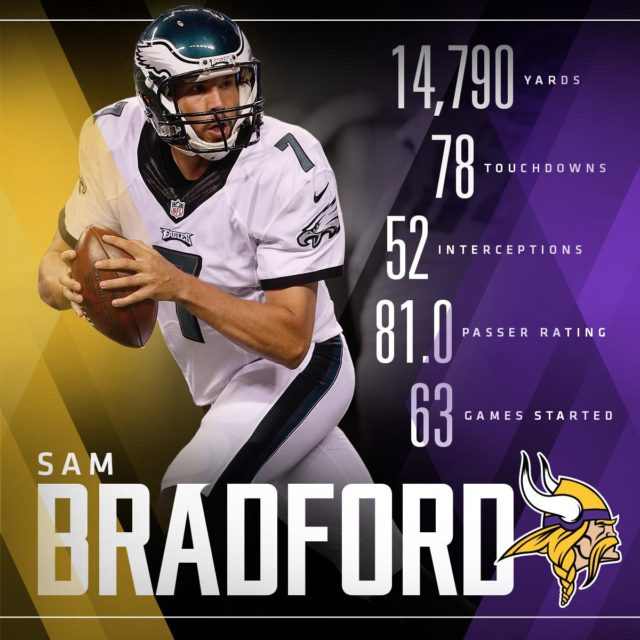 In the current edition of ESPN Magazine, Tim Keown talks to members of the Minnesota Vikings about what happened to Teddy Bridgewater. It’s hard reading:
In the current edition of ESPN Magazine, Tim Keown talks to members of the Minnesota Vikings about what happened to Teddy Bridgewater. It’s hard reading:
THE MEN WHO agree to talk about what happened do so reluctantly. Their eyes invariably drift to the spot in question: the grass practice field, somewhere near the 30-yard line, right hash. It happened with the offense heading north, 22 men on the field, no contact allowed.
They won’t talk about what the injury looked like, out of respect. These are men who long ago came to terms with the inhumanity of their game. They laugh about concussions and broken bones as a defense mechanism, the way an electrician might laugh with his buddies about getting a jolt from a faulty circuit. Occupational hazard.
But this is different. They close their eyes and wince, the image flashing in their minds. They shake their heads reflexively, as if they can dislodge the memory and evict it from their brains. They watched Teddy Bridgewater go down on that field on Aug. 30, his left leg separating at the knee, during the first minutes of a Vikings preseason practice. Every time they think about it, every time they stand near this field and close their eyes, they see it again.
[…]
Minnesota’s coach, Mike Zimmer, canceled practice. NFL teams never cancel practice. The game never stops. In a way, it’s a repudiation of Next Man Up to send everyone home — an acknowledgment that some injuries transcend the transactional. Sometimes, even in such a brutal world, circumstances dictate that the next man can’t reasonably be expected to step up, at least not right away.
“It happened at the beginning of practice, and obviously Coach made the right call to cancel,” Vikings quarterbacks coach Scott Turner says. “We weren’t going to get anything done that day.”
At his first news conference after the injury, a still-shaken Zimmer said his team would mourn for a day and move on. If anything, this meant his players needed to recommit to the mission. “No one is going to feel sorry for us, or cry,” he said. “I’m not going to feel sorry for us either.” He said he’d spoken with his mentor, Bill Parcells, for advice on how to deal with the trauma his team experienced. He said he spoke with his deceased father “in spirit.” As he continued, the coach in him drained from his eyes. He transformed from functionary to human being, and when he was asked a question about grieving — a question that somehow seemed utterly appropriate — Zimmer paused and looked down. After a deep breath, he looked to the sky as his lower lip quivered. “My wife passed away seven years ago,” he said. “It was a tough day. The sun came up the next day, the world kept spinning, people kept going to work. That’s what we’re going to do.”
In my early twenties, I had a knee injury — nowhere near as serious as Teddy’s — and to this day I can’t watch replays of leg injuries that the networks seem to always want to show as often as they can. It doesn’t just upset me, I get nauseous and have to look away. Later in the article, Keown mentions that there are no images available of Bridgewater during that practice, despite the fact that NFL teams film just about everything that happens at team events. I’m very grateful that those images are being kept from the public.




